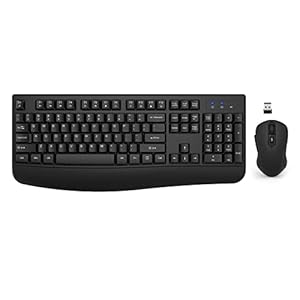Ne Zha II, the animated sequel film produced by Chinese studio Beijing Enlight Media, is already breaking records as the highest-grossing animated film of all time, and will be re-released by A24 on August 22. To further boost the film’s dub rerelease, A24 tapped Everything Everywhere All at Once Academy Award winner Michelle Yeoh to add to its must-watch factor for audiences experiencing the film for the first time in English.
Ahead of its theatrical rerelease, io9 spoke with Yeoh about taking on the role as Ne Zha’s mother, Lady Yin, the power of animation as a cultural exchange, and what starring in the film means to her as the latest emotionally resonant milestone in her illustrious career.
Isaiah Colbert, io9: What first drew you to the world of Ne Zha II? Was there something about Lady Yin—or the myth itself—that felt like it was calling to you?
Michelle Yeoh: Oh, hell yes. Ne Zha is a mythological character that I’ve known since I was a kid. This fiery, rebellious young child. I think, as a kid, I sort of related to it. Everybody wants to fight back and be the one who can go out there and beat up demons and things like that. I saw the movie in its original form first, and I remember thinking, “This is such a cinematic gem.” The animation pushes all the boundaries; it’s spectacular. It’s so rich, it’s like a tapestry that just keeps evolving. All those stunning action sequences. Even I was totally blown away trying to imagine how the heck did they think of all these different realms: the heaven, the Earth, the underground, and the dragons in chains. It was just amazing.
I felt I wanted to not read subtitles because my Chinese is not so good that I can understand in Mandarin all the way through. So I have to go down and understand “Who’s this? Ao Bing. Okay, Ne Zha. This is the dragon.” I think this was the one time I went, “I don’t want to take my eyes off the screen. I just want to watch the whole thing, but I need to understand what was going on.” I felt I needed to hear it, and my first language is English, thinking, “If only they could translate it well, that would be perfect.”
When I was given the opportunity to voice the mother of Ne Zha, it was like, she embodies the most amazing woman. She’s a warrior. She defends her city together with her husband, the general. She is the most loving mother, so it was a no-brainer ’cause it’s like my wish came true. I thought this is such a beautiful, great bridge from the Eastern world to the Western world, where the children who love Spirited Away, Coco, or Moana can come into our world. This will transcend boundaries. We’ll come and be able to embrace this crazy little demon god called Ne Zha and maybe relate to him in many ways. And then there’s Ao Bing.
To be given that opportunity, I felt that I was presented with the prize of the year to voice this woman. When you’re doing an animation, you do it from scratch. You are working your way through all the different nuances. But here, the director and his team, who painstakingly worked five years on this incredible movie, had already laid out the nuances, wit, humor, anger, and the fierceness of this woman and her husband. How she protects the child, defends him, when she’s gentle with him, when she’s the ferocious warrior, and then to the heartbreaking part where they have to say goodbye.

io9: You’ve voiced characters across wildly different worlds—from Minions and Transformers to Kung Fu Panda 2 and Ark. In the first film, Lady Yin was voiced by Stephanie Sheh, known for her role as Sailor Moon. Her performance carried the same quiet strength and maternal depth that I found in your performance. Did you draw inspiration from her interpretation, or did you find your own emotional entry point to carry the baton forward?
Yeoh: The most important thing is you have to find your own, even though there’s already an amazing interpretation, because you cannot mimic somebody else’s great performance. At the end of the day, it’s your own personal journey with the other characters. When you watch, you can hear [it]. There’s just no denying the realism or the actual emotion that you hear, which will help you to feel. It’s very superficial when you try and just copy what someone else has done.
[Beijing Enlight Media has] done an amazing job giving me a great palette to work with. I work with the director, and he will, once again, go through with me the journey of this mother, of how she carried the baby for three years, the frustration. “Just get it out of me!” But, I think the one thing I wanted [was] to make her more charming at the beginning. You would hear a mother’s voice, ’cause I have quite a bass voice. My voice is kind of low and I so I want to bring her up a bit so I don’t sound like a man, or else I’ll be doing the general, too.
As all actors do, we have to discover our journey with the character and bring to it, emotions that you see, you feel, and push the boundaries. And then under the guidance of the director who’s worked on it for like five years—they know it so well—the nuances will come when you understand the story that they are trying to tell.

io9: We’ve talked about the emotionality. But as we mentioned earlier, Ne Zha II is a visually impeccable film but it’s also a film that doesn’t hold back when it comes to its fierce action and devastating emotional beats. In my IMAX screening, adults, including myself, swore under our breaths in awe of the film. As a performer—especially when it comes to the action being pretty brutal—did you see that kind of raw intensity as part of what makes the film transcend its “children’s movie” label?
Yeoh: That’s a very good question. Nowadays, especially when the children of the world [see] action, violence or whatever with video games and with so many things like that, they understand this is all magic. This is all mythical. There’s a monster that’s charging at me with eight tentacles. It’s like, “Yeah, I’m gonna chop it off,” you know. They bring that sense of fantastical to do it so it’s not like two humans brutally fighting with each other. These [fights] are with swords, with magic, with all these kinds of things. It is a different world. Nothing in that world is real.
When you bring it in a sense of animation, it gives them a boundary where [kids] can sit back and go, “This is all pretend. This is funny and fun.” I think you sort of get away with it. I don’t want to use the word but then they’re so immune to it because they mix it with the humor. Even I am, like you say, swearing under my breath or going, “Whoa, how can that even happen?” The beauty of it is mind-blowing.
We know our dragons to be the gods of the skies. [I] never imagined they would be all tied, chained up. The whole crowd of beautiful mythical creatures, all chained up underground like that. That whole scene of them when they surge out is breathtaking. Even though it’s very tragic, you go, “Wow, this is so beautiful to look at.” In that way, you are transported. Even as a child, I’m sure there must be some moments where they go, “Ah, it’s scary.” But then after that, you go, “Oh, wow, it’s kind of cool.” If you keep them in that mindset, then it’s a very different kind of magical world.
io9: I wanted to take a moment to give you your flowers. You stand alongside icons like Bruce Lee, Jet Li, and Jackie Chan—in what I’d call kung fu cinema’s Mount Rushmore—not just for your artistry, but for the way you’ve championed Asian representation on the global stage. How do you see Ne Zha II contributing to the growing recognition that Chinese animation isn’t some new arrival, but a long-standing force that’s been evolving in parallel with Western animation and Japanese anime?
Yeoh: Thank you for that. How do you convince… You can’t talk and say, “This is what we can do.” Now you can see exactly what it is. I hope now that you go back and watch Ne Zha I. There are so many more animations coming from my part of the world that deserve recognition. Don’t take my word for it. Go and watch it yourself. Then tell me, were you blown away or were you disappointed? Then you can say it.
We have been waiting for an opportunity. It’s not as if you can demand that your audience likes it or not. Sometimes magic happens, and I truly believe Ne Zha II will be that magic ingredient so that they will be able to say, “Whoa, this was an all-Chinese effort.” Kudos to director Jiao Zi and his team, who painstakingly worked for five years to make a labor of love. They were like Ne Zha, saying, “We will not back down. We’ll keep going. We will keep demonstrating this is our self-worth. We can do this.”
Anyone who does animation will understand the amount of time and effort that goes into it. And anyone who loves animation will be able to see that in Ne Zha II—everything that was poured into it. I hope that with the English voiceover, young children will be able to enjoy it as much as their parents or their uncles, aunties, grandmothers, and grandfathers.
io9: That ties beautifully with my last question for you. At my screening, the theater was filled with Asian families—mothers, fathers, aunties, uncles—passing snacks, fresh from school pickups, turning rows of seats into something like a comfy living room. If you could speak directly to the young viewers watching Ne Zha II—especially those seeing themselves in Ao Bing and Ne Zha—what would you want them to carry with them after the credits roll?
Yeoh: Was your audience mainly Asian?
io9: A vast majority.
Yeoh: That’s a very interesting thing. Honestly, I hope Ne Zha II will go out to the non-Asian society, especially the non-Asian society. But, having said that, a lot of our—what we call ABCs (American-born Chinese), the young children who were born in America don’t really know the mythology or the folklore that came from the East. For them, I hope this is an eye opener to be able to understand more of their own culture that’s been here for such a long time. And for them to be blown away by what they can offer to their friends as well. They embrace the Moanas and the Cocos when they watch it with their American friends, but I think this is a great opportunity for the exchange to be on equal terms.
It’s like “show me yours and I’ll show you mine” sort of thing, which I think is very important in this day and age where we are embracing diversity. Not so much difference in cultures, but the similarities. I think the core message here is self-discovery, the journey with your loved ones and family, and standing up for yourself. I hope little kids, when they watch it, see the love their parents have for them and what parents will do for them. You know, when you’re young, you don’t really see it. You just get petulant when they don’t give you your iPad or your phone, or something like that. But when you watch Ne Zha II, you can see that whatever you do, your parents will always be there for you.
Ne Zha II returns to theaters and IMAX on August 22.
Want more io9 news? Check out when to expect the latest Marvel, Star Wars, and Star Trek releases, what’s next for the DC Universe on film and TV, and everything you need to know about the future of Doctor Who.
Trending Products

Acer Nitro 27″ WQHD 2560 x 14...

ASUS Prime AP201 33-Liter MicroATX ...

Lenovo V-Series V15 Business Laptop...

Logitech MK825 Efficiency Wi-fi Key...

Sceptre Curved 24.5-inch Gaming Mon...

Dell Inspiron 16 Plus 7640 Laptop &...

Wi-fi Keyboard and Mouse Combo, EDJ...

Primary Keyboard and Mouse,Rii RK20...

Lenovo Ideapad Laptop computer Touc...






